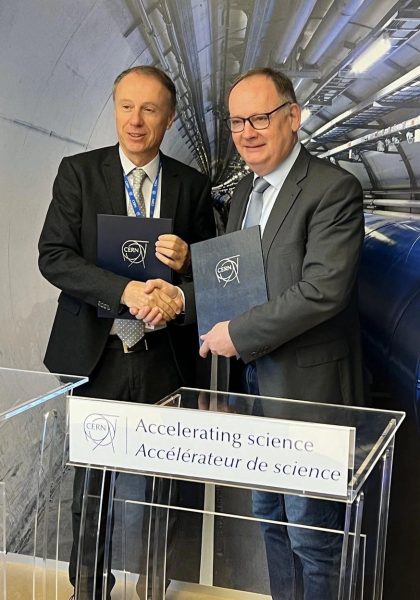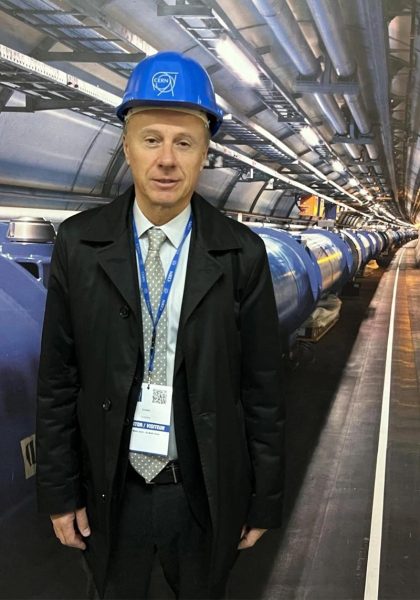The University of Belgrade has officially become part of CERN’s largest scientific endeavor, the Future Circular Collider (FCC) project, through a Memorandum of Understanding signed in Geneva.
This partnership enables the university and other Serbian scientific entities to contribute to this next significant phase in scientific and technological advancement, as articulated by Prof. Dr. Vladan Đokić, the university’s rector, and Dr. Michael Benedikt, the FCC study leader from CERN.


The University of Belgrade will be involved in the development of the FCC, a vast accelerator complex planned to span 90 to 100 kilometers, focusing on cutting-edge research in high-energy and particle physics. Key institutes and faculties from Belgrade and Novi Sad are part of the Serbian team engaged in significant CERN experiments and collaborations, reflecting Serbia’s active participation in global scientific research initiatives.
